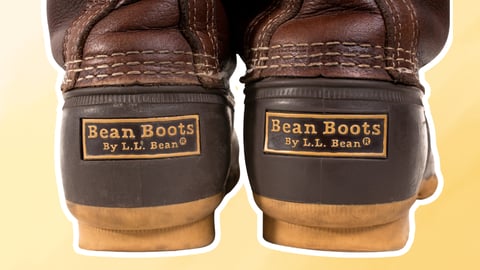Why Luxury Brands Like Versace, Chanel & Giorgio Armani Are Betting Big on Digital Consumer Engagement
The luxury experience has typically been associated with high-end products, concierge services, an elevated consumer experience, and a feeling of all-around convenience. This has only been amplified with the swift advancement of technology. As a result, consumers are increasingly finding these amenities in the digital world.
Luxury consumer goods companies, especially within apparel, have upped the ante in recent years, entering into online spaces and overhauling their marketing and digital capabilities to differentiate their products and services from competitors in the field and better engage with luxury consumers.
Also read: How WK Kellogg, Molson Coors, Kraft Heinz Are Adjusting to ‘Choiceful’ Consumer Behavior
“Luxury has found interaction with the consumer a critical part of keeping the brand elevated and resonating with their customer,” Marshal Cohen, chief retail advisor, Circana, tells CGT.
Companies like Versace, Chanel, Gucci, Burberry, Ralph Lauren, and Giorgio Armani are among the companies that have unlocked ways to keep consumers engaged through innovative marketing activations and personalization techniques.
Social Media Brings Luxury Right to the Consumers
If there’s one thing that luxury consumers typically share, it’s their desire to make their purchases known — even in a virtual sense.
“Consumers being able to ‘show off’ that they acquired a luxury item, as well as where and when they used it, all play into powering the brand,” says Cohen. “Tapping into the sharing of the experience the customer has, how they use it, and even how they acquired the products all play a role in sharing the experience.”
This is why companies like Versace have partnered with social media channels, giving consumers a platform for sharing while also amplifying the brand name. The Italian fashion house created a virtual try-on lens on Snapchat for its Versace Mercury sneaker collection, allowing users to test the footwear through augmented reality technology, while also making the product available in a digital format for use with Bitmojis.
“Today’s consumer is influenced even more by the online and social media world, which impacts their purchase behavior,” says Cohen.
Concierge Services Have Gone Digital
While in-person boutique experiences continue to hold a firm grasp on luxury shoppers, 66% of customers, across all generations and geographies, visit a maison’s e-commerce site before shopping in its physical space, according to Bain & Company.
It’s not surprising then that luxury brands have sought to bring a sense of concierge-level service and personalization to the digital experience.
Giorgio Armani, for example, recently began using 3D technology to give clients access to its Made to Measure service, along with the creative design process to envision different models and materials coming together. The virtual design process is followed up by a video consultation — or a boutique appointment if they prefer an in-person visit — where they can finalize the purchase.
“Anything that enables people to order something ahead — including a service — or have a personalized interaction with someone is valued,” Forrester VP and principal analyst Sucharita Kodali tells CGT.
This has been an area ripe for artificial intelligence innovation. Gucci is using AI to predict upcoming fashion trends to stay ahead of changing consumer preferences, and Burberry has tapped AI within its chatbots and interactive apps to provide personalization capabilities. Last year, Ralph Lauren said it was testing generative AI for copy editing, graphics, and computer programming.
Ongoing AI investment continues as well. CEO of luxury goods conglomerate LVMH Bernard Arnault has recently invested in several AI startups exceeding $300 million through his Aglaé Ventures company.
“Making reservations, seeing the status of your reservation, all of that is good,” says Kodali. “Most companies digitize the sale. Luxury companies do best when they digitize parts of the ownership experience.”
Brands Compete for Gen-Z Interest and Consumer Recruitment
It’s clear luxury consumer goods companies are increasingly looking to target a younger demographic — Gen Z, in particular, is a subset of the population that presents significant opportunity for these businesses. Those born between 1997 and 2012 will account for nearly a third of luxury purchases by 2030, according to Bain.
Recent marketing efforts, such as from Chanel, have tapped into gamification to capture interest. The manufacturer of luxury goods like handbags, shoes, fragrances, makeup, and fashion, launched Chance the Game earlier this year. The virtual funfair allows players to customize their avatars to participate in racing minigames and unlock seasonal content.
While this may not be a direct sales-closing opportunity, Cohen says that showcasing the power of the brand on digital platforms transforms the purchase experience. In an ultra-competitive landscape, it can serve as a differentiator as well.
Kodali says one of the bigger challenges among high-end brands is the difficulty in differentiating a luxury good due to the limited market size and a very labor-intensive service mode. “Customer acquisition is much harder with luxury consumers. You can't just put a product on a shelf or buy Amazon ads — you need to find the right consumers and then sell the product to them.”
Learn how consumer goods brands are measuring consumer engagement and pivoting their marketing strategies to adapt to changes at the Consumer Goods Sales & Marketing Summit! Join us Sept. 23-25 in Princeton, NJ.
And as consumer preferences and shopping trends continue to flex at a rapid pace, it’s essential that these companies understand the makeup of the consumer to resonate with them, says Cohen.
The things that trigger consumers and lead to sustainable relationships with brands change, he adds. Luxury brands that can keep up will endure. “Themes, flow of ages, income levels, and even ethnicities evolve with luxury and market trends. Knowing when to strike is critical.”









